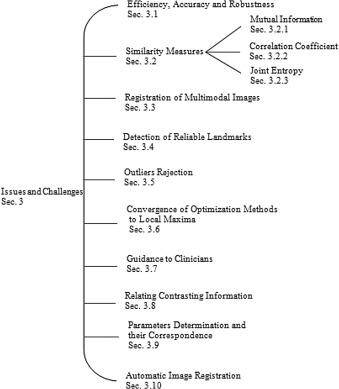Features section
Add advertising hereIn the vast digital landscape where millions of websites vie for attention, the journey of registration can often feel like wandering through a labyrinth. From the moment a user inputs a search query into a search engine to the step of submitting a site to a specialized directory, the process is crucial in shaping online visibility. Navigating these waters requires understanding the nuances of various platforms and their specific requirements. In this exploration, we delve into the intricacies of website registration, examining how to effectively maneuver from search engines to directories. Whether you’re a budding entrepreneur looking to establish an online presence or a seasoned webmaster seeking to enhance your site’s reach,this guide will illuminate the pathways to successful registration,ensuring your digital footprint is both efficient and robust. Join us as we unravel the essential strategies and tips to help your website stand out in an ever-evolving online marketplace.
Table of Contents
- Understanding the Landscape of Website Registrations
- Essential Considerations for Search Engine Submissions
- Maximizing visibility through Online Directories
- Best Practices for Maintaining Registration Accuracy and Relevance
- Q&A
- Concluding Remarks

Understanding the landscape of Website Registrations
The journey of website registrations can be as intricate as the web itself, shaped by various factors such as target audience, business goals, and desired visibility. Understanding your goals is the first step toward choosing the right platform. There are two primary paths for website registrations: search engines and directories. Each offers unique advantages and is integral to improving your online presence. Search engines provide vast exposure as they index millions of sites, while directories typically offer focused categories and can enhance credibility and trust with users.
When considering website registration,it’s essential to weigh the pros and cons of each option. Here are some factors to consider:
- Search Engines: Wide reach, often free, but requires SEO efforts.
- Directories: Targeted audience, credibility boost, but may require fees.
To effectively navigate your registration process, you might want to compare some popular platforms. Below is a brief overview:
| Platform | Type | Registration Fee |
|---|---|---|
| Google search Console | Search Engine | Free |
| Yelp | Directory | Free (But optional ads available) |
| TripAdvisor | Directory | Free listing available |
| Bing Webmaster Tools | Search Engine | Free |

Featured section
Add advertising hereEssential Considerations for Search Engine Submissions
When submitting your website to search engines, there are several key elements to keep in mind that can significantly affect your visibility and indexing speed. firstly, ensure your website adheres to the search engine’s guidelines to avoid penalties. This includes having a well-structured sitemap, optimized page speed, and mobile-amiable design. Additionally, it’s crucial to regularly update your content, as fresh and relevant information tends to attract both search engines and users alike. Implementing on-page SEO techniques, such as using relevant keywords and alt text for images, will also improve the chances of your site being indexed correctly.
Another vital aspect of search engine submissions is understanding the different types of backlinks. Quality over quantity is the mantra here, as a few authoritative backlinks can boost your SEO more effectively than numerous low-quality links. As you strategize your submissions, consider the ongoing nature of SEO; this isn’t a one-time task but an ongoing process. Regularly reviewing your analytics can help identify which submissions yield the best results. Keeping up with industry trends and adapting your submission strategy accordingly can make a ample difference in your website’s search engine performance.

Maximizing Visibility through Online Directories
In today’s digital landscape, being present in online directories is essential for businesses seeking to enhance their online visibility. these platforms not only serve as a repository for information but also help potential customers discover your services easily. By listing your business on recognized directories, you can ensure that you’re not just another name lost in the vast ocean of the internet. Here are some strategies to optimize your presence:
- Choose the right directories: Focus on directories that align with your industry for maximum impact.
- Keep information up to date: Regularly check and update your business details, such as address, phone number, and details on services.
- Encourage customer reviews: Positive feedback can significantly boost your credibility and ranking on these platforms.
To better illustrate the potential benefits, consider the following comparison of visibility metrics between businesses that engage with various online directories versus those that don’t:
| Metrics | With Directory Listings | Without Directory Listings |
|---|---|---|
| Average Monthly Traffic | 2,500 visits | 500 visits |
| Click-Through Rate (CTR) | 15% | 5% |
| Customer Inquiries | 150 | 30 |
These statistics underscore the impact that strategic use of online directories can have on your business. By embracing this approach, you can forge new connections, drive traffic, and ultimately enhance your overall reach in a competitive market landscape.

Best Practices for Maintaining Registration Accuracy and Relevance
To ensure that your website remains relevant and accurately represented across various platforms, it’s essential to regularly review and update your registration details.Start by maintaining an organized database of all your registrations, including information on where and how you are listed. This includes search engines, local directories, and niche platforms. Regularly audit these listings to verify that the information—such as your business name, address, phone number (NAP), and website URL—is correct. Incorporate a schedule for these audits, such as every three to six months, depending on the frequency of changes to your business. Monitor any feedback or reviews that may arise from these listings and respond promptly to maintain a positive image.
Moreover, evaluate the effectiveness of each registration by analyzing its impact on your website’s traffic and engagement. utilize tools such as Google Analytics to track referrals from various sources and identify which registrations yield the best results.Beyond accuracy,ensuring that your content remains relevant plays a crucial role in driving both user engagement and search rankings. Here are key strategies for relevance:
- Update your registration information when you launch new services or products.
- Engage with your audience by posting regular updates or promotional offers.
- Participate in community discussions to boost visibility on relevant platforms.
Consider investing time into building relationships with industry-related directories as well, which can enhance your credibility and bring additional visitors. Remember, a precise and relatable online presence not only aids search engines in categorizing your website effectively but also enhances user trust and improves overall brand perception.
Q&A
Q&A: navigating Website Registrations: From Search Engines to Directories
Q1: What are website registrations, and why are they important? A: Website registrations involve submitting your site to various platforms, such as search engines and online directories, to increase visibility and attract traffic. They serve as a doorway to potential visitors,making it easier for them to discover your content.A well-registered website enhances credibility and helps improve search engine rankings, ultimately contributing to overall online success.
Q2: What is the difference between search engines and directories in the context of website registrations? A: Search engines, like Google and Bing, automatically index websites based on content and relevance through their algorithms. Directory sites,on the other hand,are curated collections where website owners submit their URLs to be listed manually under specific categories. While search engines offer a broader reach, directories frequently enough cater to niche audiences and can definately help establish a more focused presence.
Q3: How do I register my website with a search engine? A: To register your site with a search engine, start by ensuring that your website is optimized for search—this includes implementing SEO best practices. Then, submit your website’s URL through the search engine’s webmaster tools, like Google Search Console. Here, you can also submit a sitemap to help search engines crawl and index your site more efficiently.
Q4: What are the steps to submit my website to online directories? A: Submitting your site to directories typically involves these steps:
- Research Relevant Directories: Identify directories that align with your niche or industry.
- Create an Engaging Business Profile: Prepare a compelling description, ensuring it adheres to the directory’s guidelines.
- Provide Necessary Information: Submit your website URL along with contact details, location, and category.
- follow up: some directories require manual approval, so keep track of your submission and update your profile as necessary.
Q5: Are there costs associated with registering my website to directories? A: Yes, while many online directories are free, some may charge fees for premium listings or additional features such as enhanced visibility. It’s worth weighing the potential benefits against the costs, especially for directories with a strong reputation in your industry.
Q6: How can I measure the success of my website registrations? A: The success of your registrations can be measured through several metrics: website traffic, referral sources in analytics, increases in search engine rankings, and engagement rates. Tools like Google Analytics can definitely help track changes over time,giving you insight into how your registration efforts are impacting your site’s performance.
Q7: what common mistakes should I avoid when navigating website registrations? A: Here are a few pitfalls to steer clear of:
- Neglecting SEO Best Practices: Ensure your site is optimized before registration to maximize its potential.
- Inconsistent Information: Keep your business details uniform across all platforms to avoid confusion.
- Overlooking Niche Directories: Sometimes smaller, niche directories can yield better results than larger, general ones.
- Ignoring Submission Guidelines: Each platform has its unique requirements, so following them is crucial for approval.
Q8: What are some future trends to consider in website registrations? A: The landscape of online visibility is ever-evolving. Emerging trends include the rise of voice search optimization, increased importance of local SEO, and the integration of AI-based personalization in user experiences. Staying updated with these trends can help in formulating effective strategies for website registrations, ensuring you remain competitive in the digital marketplace.
By understanding these elements of website registration, you can effectively navigate the terrain from search engines to directories and boost your online presence.
Concluding remarks
As we wrap up our exploration of website registrations, it’s clear that navigating the digital landscape is both an art and a science. From the intricate algorithms of search engines to the curated lists of directories,every avenue you follow can significantly influence your online visibility and success. By understanding the nuances of each registration process, you can create a robust online presence that not only reaches your target audience but also stands out amidst the noise of the internet.Remember, each registration is not just a checkbox on a to-do list; it is an opportunity to connect, communicate, and engage with your audience. As you move forward in your digital journey, keep in mind the lessons learned here, and continue to adapt and refine your strategies. The world of website registration might potentially be complex, but with patience and perseverance, you can navigate it effectively. Thank you for joining us on this insightful journey. May your registrations lead to rewarding connections and endless possibilities in the vast expanse of the web!





